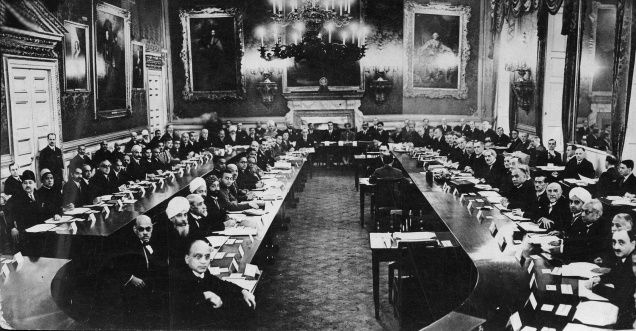Second Round Table Conference: A Failed Attempt at Constitutional Reforms
History Indian HistoryPosted by NewAdmin on 2025-02-11 08:38:01 |
Share: Facebook | Twitter | Whatsapp | Linkedin Visits: 32

The Second Round Table Conference was held in London from September 7, 1931, to December 1, 1931, with the aim of continuing the discussions on constitutional reforms for India. Unlike the first conference, which was largely unproductive due to the absence of key Indian leaders, the second conference saw the participation of Mahatma Gandhi, who was sent as the representative of the Indian National Congress (INC) following the Gandhi-Irwin Pact. The conference was a significant step in the ongoing efforts to address the growing demands for Indian self-rule.
The participation of Gandhi in the second Round Table Conference was a major development, as it symbolized the willingness of the Indian National Congress to engage in direct negotiations with the British government. Gandhi, along with other Indian leaders, including B.R. Ambedkar and Muhammad Ali Jinnah, represented the interests of various sections of Indian society. The conference also included representatives from different political groups, including the British government, but the discussions were largely centered around the future constitutional structure of India.
At the conference, Gandhi and the British government debated issues such as the future governance of India, the protection of minority rights, and the distribution of powers between the central government and the provinces. Gandhi, speaking for the Indian National Congress, advocated for self-rule and complete independence for India. However, the British government was not prepared to grant full independence and was instead focused on granting limited reforms, which would allow for more Indian participation in governance while maintaining British control.
The conference ended without any significant agreements. The Indian National Congress’s demands for full self-rule were rejected, and no substantial constitutional reforms were agreed upon. Gandhi, despite his participation, could not secure the changes that the Congress had hoped for, and the British response to the demands for greater autonomy was largely dismissive.
However, the Second Round Table Conference marked a critical moment in the ongoing dialogue between India and the British government. It highlighted the complexities of the Indian independence movement, with differing political views and approaches among Indian leaders. The failure of the conference deepened the divide between the Congress and the British government, setting the stage for the intensification of the Indian freedom struggle in the years that followed.
Search
Categories
Recent News
- Bengaluru Metro's Pink Line Expansion: A Breath of Fresh Air for Commuters
- Ghana's Youth Drug Crisis: A National Tragedy
- India's Services Sector Soars: A Boost for the Economy
- Gold Bond Investors Face New Tax Reality
- Bengaluru Colleges Face Uncertain Future: The Looming Fee Hike Crisis
- Anna University Convocation: Minister's Absence Sparks Speculation
- GATE 2026: Countdown to the Crucial Exam
- Sisters' Tragic Fall: A Shocking Wake-Up Call for Ghaziabad